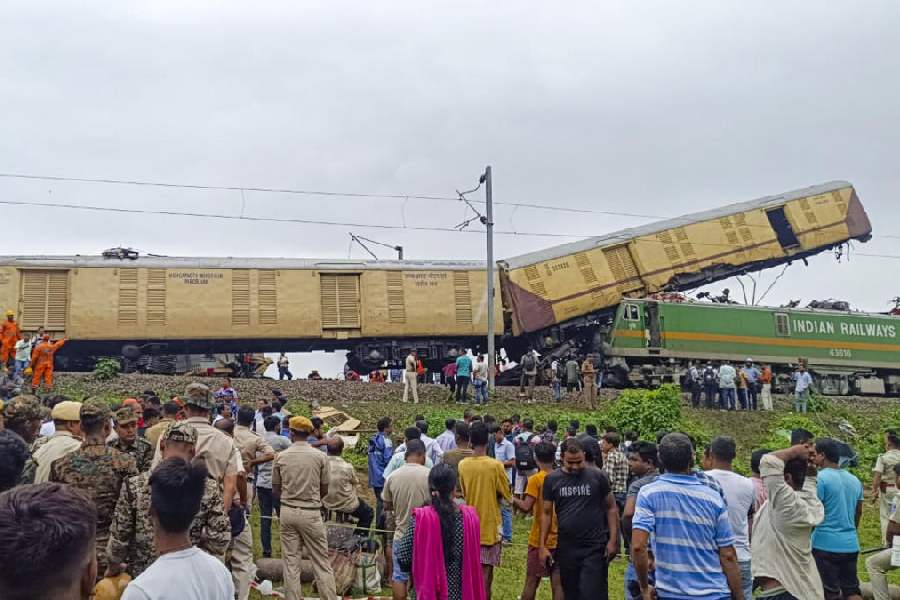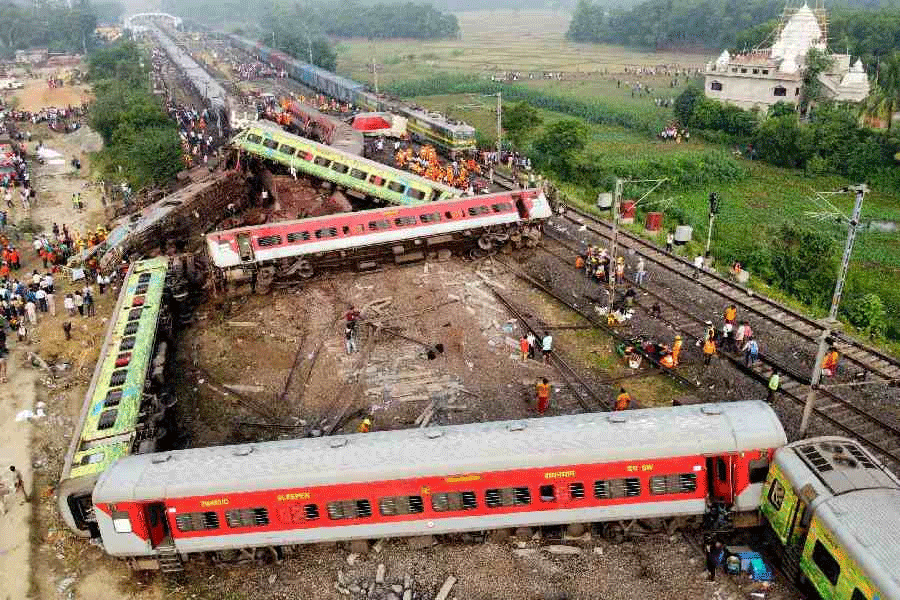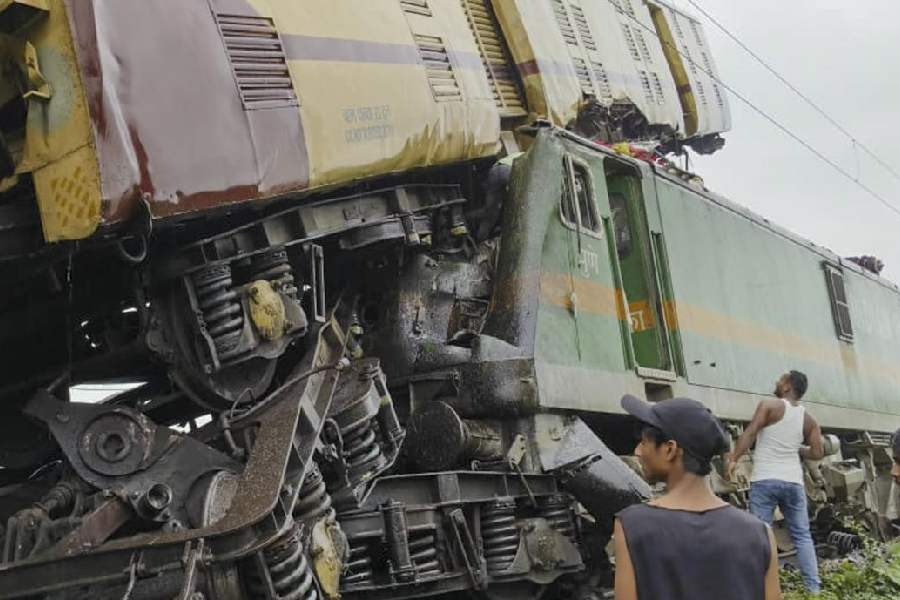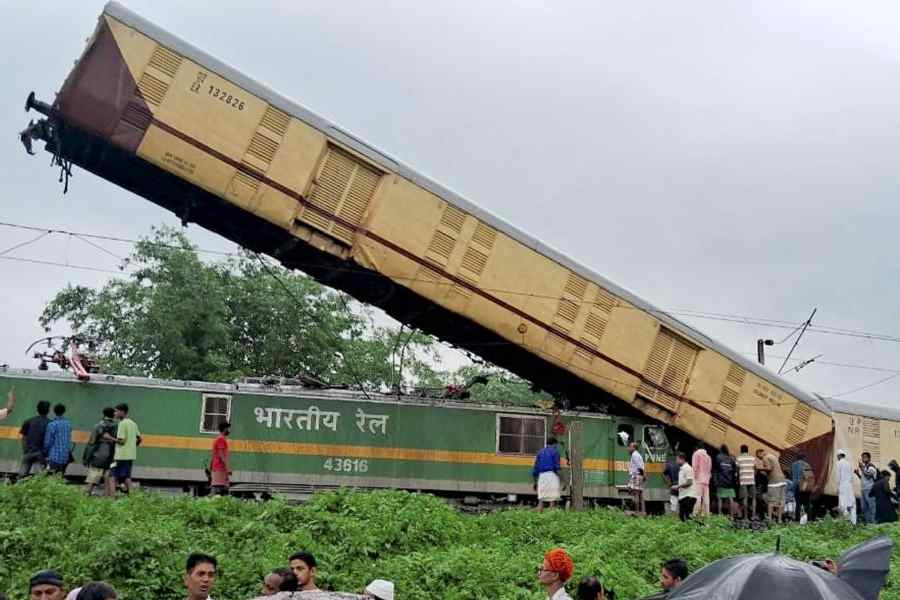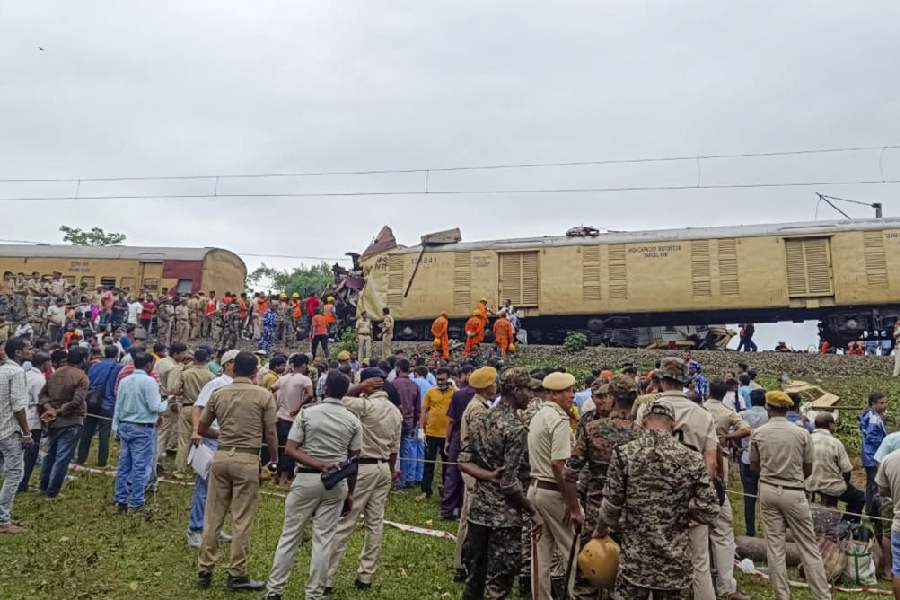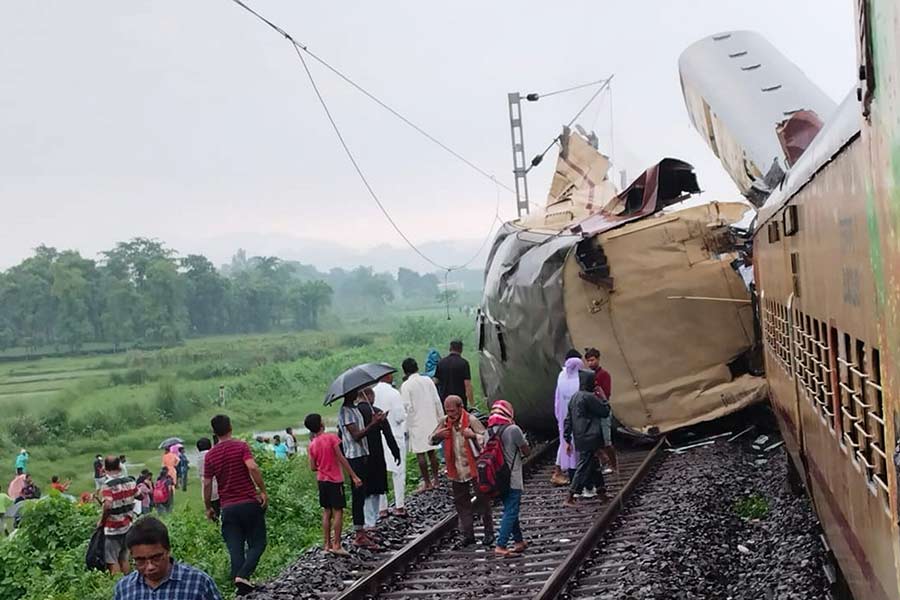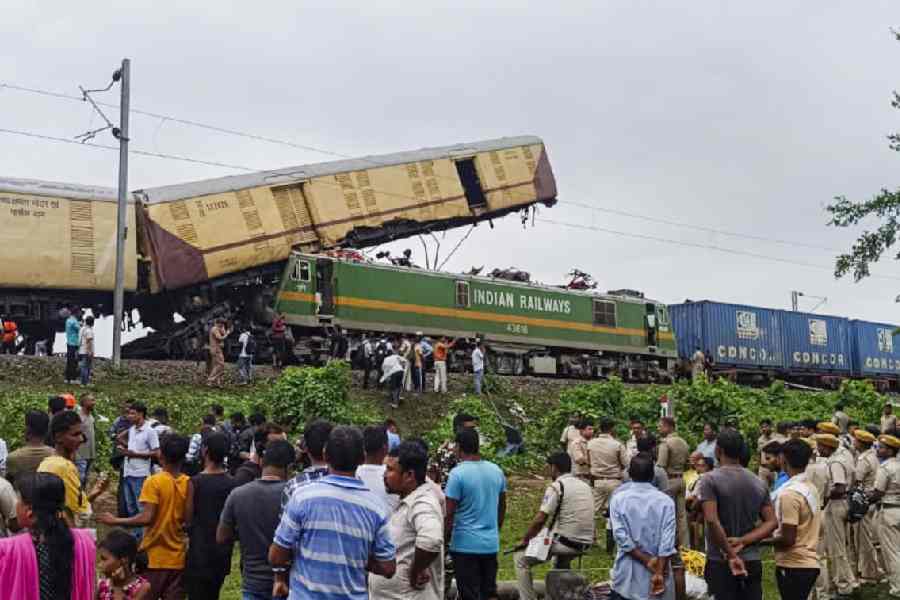The goods train that rammed into the Kanchanjunga Express between Ranipatra Railway Station and Chattar Hat Junction in West Bengal on Monday was allowed to cross all red signals as the automatic signalling had "failed", internal documents show.
The document, a written authority called TA 912, was issued to the driver of the goods train by the station master of Ranipatra, authorising him to cross all red signals, a railway source said.
"Automatic Signalling has failed and you are hereby authorized to pass all automatic signals between RNI (Ranipatra Railway Station) and CAT (Chattar Hat Junction)," says the authority letter.
It also mentions that there are nine signals between RNI and CAT and authorises the goods train driver to cross all in speed, ignoring whether they are showing red or caution (yellow or double yellow).
"The TA 912 is issued when there is no obstruction or any train on the line in the section, and it authorises the driver to cross red or caution signals. It is a matter of investigation why the station master did that. He might have been under the impression that the previous train crossed the station section and entered into another section," the railway source explained.
According to the source, the automatic signalling system between RNI and CAT was defective since 5.50 am Monday.
"Train No. 13174 (Sealdah-Kanchanjunga Express) departed Rangapani station at 8:27 am and stopped between RNI and CAT. The reason for the stopping of the train is unknown" the source told PTI.
According to another railway official, when the automatic signalling system fails, the station master issues a written authority called TA 912 that authorises the driver to cross all red signals in the section because of the defect.
"The station master of Ranipatra had issued TA 912 to Train No 1374 (Sealdah-Kanchanjunga Express)," the source said.
He added that "around the same time, a goods train, GFCJ, departed Rangapani at 8:42 am and hit 13174 from behind at 8:55 am, resulting in the derailment of the guard's coach, two parcel coaches and a general seating coach (of the passenger train)".
The Railway Board in its initial statement said the driver of the goods train violated the signal. It pegged the overall death toll at nine. Besides, nine people are grievously injured and 32 suffered minor injuries.
"The collision happened because a goods train disregarded the signal and hit the Kanchanjunga Express, which was on its way to Sealdah from Agartala," Railway Board Chairperson Jaya Varma Sinha told reporters here soon after the accident that took place at 8:55 am.
The Indian Railway Loco Runningmen Organisation (IRLRO) questioned the railways' statement that the driver violated the red signal.
The organisation's working president Sanjay Pandhi said, "Now, it is clear from the document that the loco pilot of the goods train was authorised to cross red signals because they were defective. This is the failure of the railway administration and not the fault of the driver." "It is highly objectionable to announce that the loco pilot (of the goods train), who died in the accident, is responsible and also at a time when a CRS inquiry pending," he said.
Except for the headline, this story has not been edited by The Telegraph Online staff and has been published from a syndicated feed.

